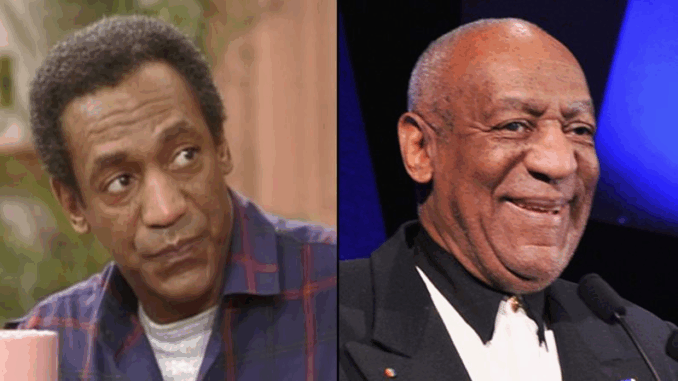
In the crowded world of American sitcoms, few shows have had as profound and lasting an impact as The Cosby Show. More than just a television series, it became a cultural movement—reshaping narratives, launching careers, and opening doors that had long been shut to Black creators and stories.
Breaking the Mold
When The Cosby Show first aired in 1984, the TV landscape was overwhelmingly white and formulaic. Sitcoms revolved around slapstick, stereotypes, or cookie-cutter suburban families. Enter the Huxtables: an affluent, Black family led by two professionals—a doctor and a lawyer—raising five kids in Brooklyn. This image was revolutionary. Not because successful Black families didn’t exist, but because they had never been portrayed with such authenticity and respect on national television.
Bill Cosby, already an established entertainer at the time, used his influence to shape every aspect of the show’s development. He demanded creative control, hired a racially diverse writing staff, and insisted on positive, multidimensional characters. This was no accident; it was a conscious effort to challenge and correct the limited representation of Black Americans in media.
Television with Purpose
What made The Cosby Show unique wasn’t just its setting or cast—it was its tone. Episodes blended humor with heartfelt life lessons. Topics like teenage independence, integrity, responsibility, and education were woven into the fabric of each storyline. But unlike many “message-driven” shows, The Cosby Show never felt preachy. Its genius lay in its subtlety: it entertained first, and taught second.
The show also leaned heavily on cultural enrichment. Jazz music underscored many episodes. Art by African American artists adorned the Huxtable home. Historical references, especially to Black writers, musicians, and activists, were common. Even the fashion—especially Clair Huxtable’s power suits and Denise’s Afro-Bohemian style—reflected evolving Black identity and pride.
Creating a Generation of Dreamers
For millions of viewers, especially children of color, The Cosby Show was the first time they saw people who looked like them portrayed as whole, aspirational, and worthy of admiration. It sparked imaginations and ambitions. It made young people believe they could become doctors, lawyers, artists—or simply dream without limitation.
It also had an unexpected economic impact. The “Cosby Effect,” as some educators called it, contributed to a spike in enrollment at Historically Black Colleges and Universities (HBCUs). The influence was so powerful that it inspired the spinoff series A Different World, set at a fictional HBCU and equally influential in its own right.
Controversy and the Challenge of Legacy
Of course, the shadow cast by Bill Cosby’s criminal convictions has complicated the show’s legacy. Networks dropped reruns, critics reevaluated its cultural weight, and many fans were left with a sense of betrayal. Can we separate the creation from its creator? Should we?
These are difficult questions with no easy answers. Yet, there is a growing consensus that while Cosby the man is condemned, the show itself—created by the contributions of dozens of talented actors, writers, directors, and producers—should not be erased entirely from cultural memory.
A Blueprint That Still Inspires
The Cosby Show laid the groundwork for a more inclusive television industry. Its success proved that diverse stories could resonate with all audiences, and that there was a demand—both artistic and commercial—for programming that reflected real America.
Shows like Black-ish, Abbott Elementary, and Insecure owe part of their existence to the doors The Cosby Show helped open. Though its legacy is no longer simple or unblemished, its impact remains undeniable.
As television continues to evolve, The Cosby Show stands as both a trailblazer and a cautionary tale. It reminds us of the power of storytelling—and the responsibility that comes with it.
